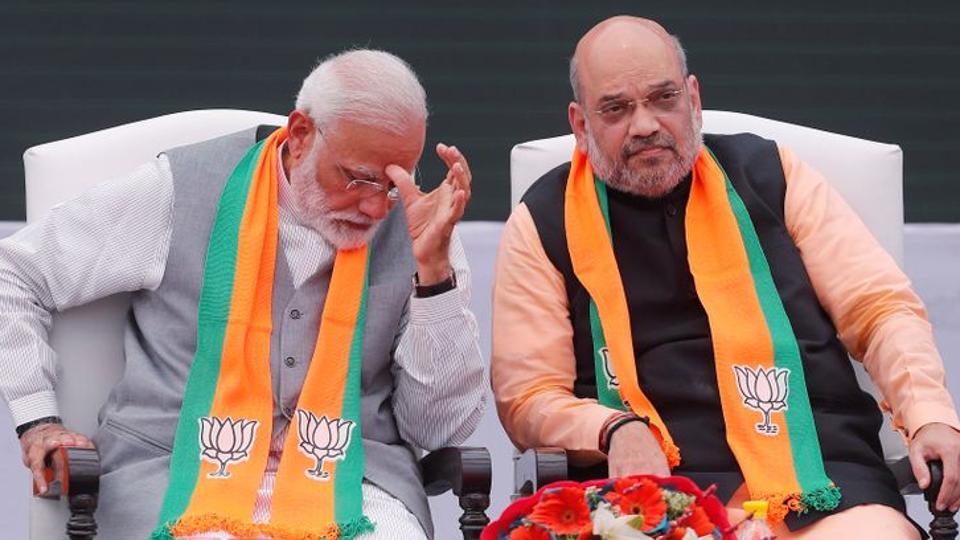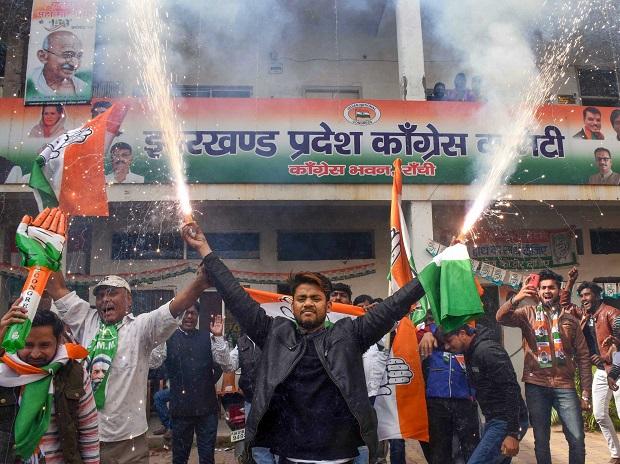The clouds of Saffron have been dispersing from the skies of most of the Indian states as the heat against the ruling party at the Center has been intensifying in the wake of upholding the authoritarianism through its propaganda by nullifying the constitution. The BJP party has been boomeranged with the unexpected defeats on the policies which the party dreamt of carpeting the nation with its Hindutva ideology.

The Central states of India, which once ruled and dominated by BJP, are the ones currently holding the batons of presenting the party with the results that would back-track its biased agendas. BJP has been witnessing the row of defeats in seven months since the party had retained the power at the Center through sweeping a massive majority in 2019 Lok Sabha polls. After forming a new parliament, the government has unfolded what the republic of India has never seen before in seven decades - passing of bills. The current parliament has passed more bills in less than a year that had poured in more controversies and criticism which have been answering the party through the state elections.
The states like Haryana, Maharashtra, and Jharkhand are the key and crucial states that went for legislative elections after the Lok Sabha polls and these states have been ruled by the BJP then and the party had seemingly failed to retain their votes what it got in the Lok Sabha elections as the BJP was pushed to stoop low in these states by having no majority mark to form the government. In Haryana, it was ought to join hands with the regional party to hold the power while in Maharashtra and Jharkhand, the party was bided with huge 'Adios' as the ship of Saffronisation of India has been submerging.

While BJP had lost its throne in Maharashtra after a month-long battle in November, it has now ousted from Jharkhand, a resource-rich central state. On Monday, the coalition of Congress and Jharkhand Mukti Morcha party had gained the power in the state and the defeat was served to BJP in the middle of the nation-wide uproar and the unrest that persist against the amendment of Citizenship Act. By losing its key state, the BJP had shrunk its rule in 35% of the nation's territory while it over 75% in 2017 and the saffron states have been scattered each other from the west to east and the party has been cornered from some of the crucial states apart from controlling the Northeastern states.

In 2017, the party controlled 69% of India's population while it has been decreased to 43% in 2019 and its defeat had armored the opposition parties to soaring high in its trajectory of standing against the BJP regime. The coalition of the opposition consists of Congress, Jharkhand Mukti Morcha, and RJD had swept a clear majority by gaining 47 seats in 81 member assembly while BJP got 25 seats - a strong decline in the seats as the party had obtained 11 out of 14 Lok Sabha seats in 2019 Parliamentary polls.
The slowdown of BJP has certainly to be threaded with its biased and handicapped policies over real-time issues like economic uncertainty. By marking the victory in Jharkhand, Senior Congress leader Ghulam Nabi Azad blamed the Modi-led BJP government on failing to address the economic slowdown and using NRC (National Register of Citizens) to divert the nation from the pressing issues.

After becoming a single largest party, leader of Jharkhand Mukti Morcha Hemant Soren is likely to take oath as the Chief Minister as the Congress party had proposed him to lead the government and the alliance in the state while the national party would be settling up with minor roles in the government and the reports say that Soren would be meeting the state governor to stake a claim in forming the new government while the BJP had concealed its defeat, it had left no trace that it would be lowering the tensions by seemingly unaware that the spear arrowed by them has been getting boomeranged against them as, despite the unrest, the BJP party has been unleashing its counter for the opposition parties by claiming that the Citizenship Amendment Act would in no way harm the minorities.









Comments